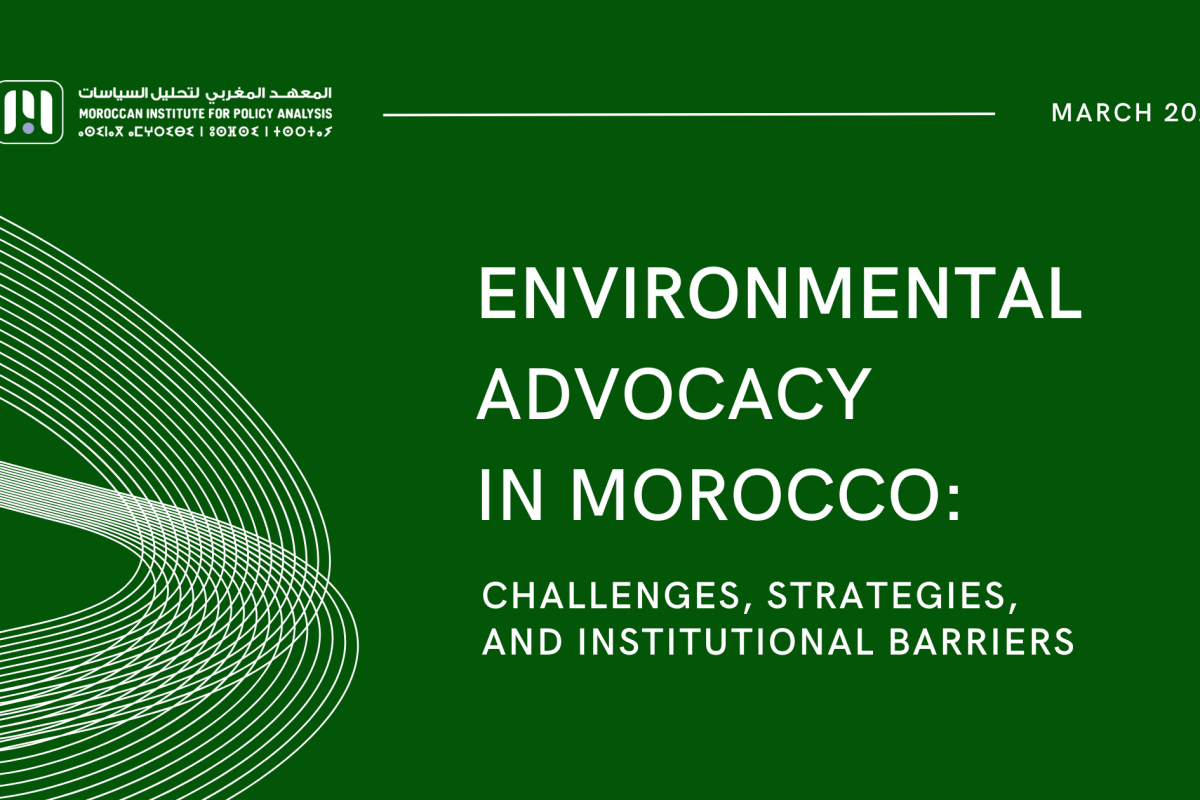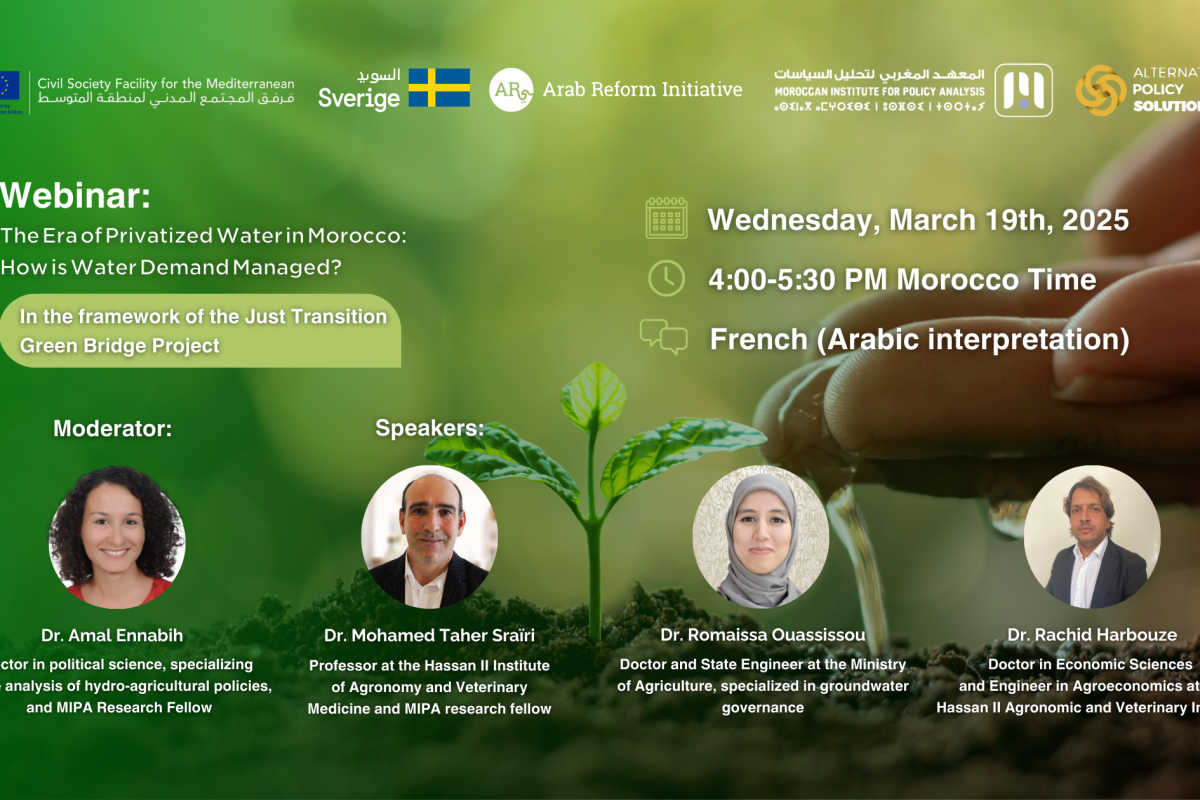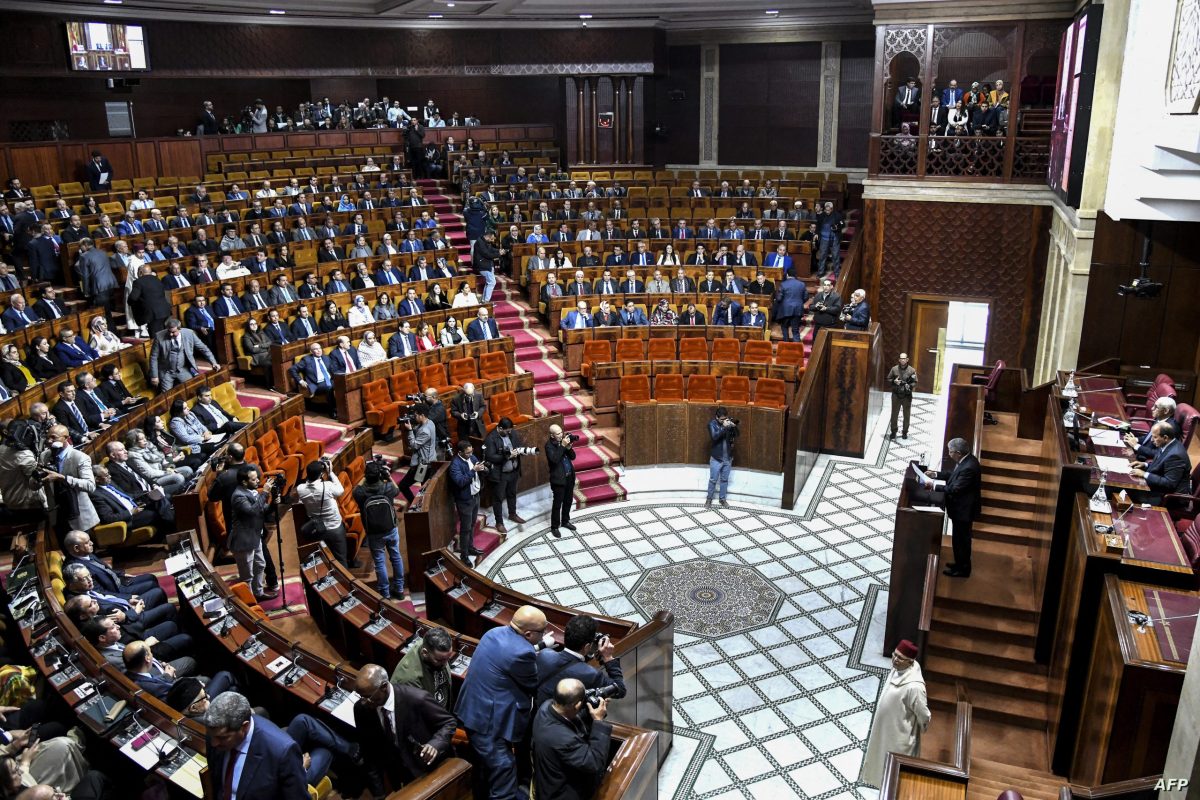Moroccan Fiscal Policies: For An Equitable Tax and A Simplified Process
Policy Dialogue Series 2021/2022
December 16th, 2021, Rabat, Morocco
Background
Morocco has implemented reform measures to reduce the fiscal imbalances, increase the fiscal asset and restore the sustainability of the government’s finances. Recently, the 2021 Finance Bill comes into play in a particular international context marked by an unprecedented health crisis generated by the Covid-19 pandemic which has impacted both developed and emerging and developing countries, with heavy squeezes on GDP in the first half of 2020.
In the framework of tax reforms, King Mohammed VI chaired a Council of Ministers, in which a founding text relating to tax reform in the form of framework bill was approved. Prepared in application of the High Royal Directions and on the basis of the recommendations of the National Conference on Taxation held in May 2019, this project aims to establish an efficient, fair, equitable and balanced tax system, which consolidates the constitutional principles of tax fairness and the universal principles of good fiscal governance and makes it possible to mobilize all fiscal potential to finance public policies, promote economic development and achieve social inclusion and cohesion.
Additionally, the New Development Model emphasizes the importance of making the tax system more equitable by significantly broadening the tax base through the fight against fraud and tax evasion, the streamlining of tax expenditures and the integration of the informal sector. This strategy is based on five structuring levers, among of which is developing a more effective fiscal policy, capable of mobilizing additional resources, whose potential is estimated at between 2 and 3% of GDP. This will involve improving tax equity, broadening the tax base, integrating the informal sector, and optimizing tax expenditures in the broad sense, including niches of tax exemptions that are no longer justified[1].
The purpose of this policy dialogue is to:
- Strengthen fundamental rights through a tax system based on respect for the equality of all before taxes, tax fairness, the right to information and to guarantee the rights of the taxpayer and those of the administration;
- Protect the taxpayer against any abusive interpretation of legal texts by the tax administration, strengthen the relationship of trust between this administration and the taxpayer, guarantee the right of appeal for both parties and achieve independence of the competent tax authorities, in addition to create a National Tax Observatory;
- Establish a tax system in the service of competitiveness, innovation and job creation and mobilize the full tax potential to guarantee better financing of public policies;
- Orient the tax system towards strengthening solidarity, particularly for the financing of social safety nets, such as medical coverage, family allowances, as well as for the reduction of social inequalities. It also aims to reform the taxation of local authorities in order to guarantee them permanent resources, in line with the State’s determination to review and simplify the rules relating to these taxes and their harmonization with the provisions governing state taxes.
This policy dialogue in collaboration with OXFAM Morocco provides an opportunity for tax policymakers and tax administrators to identify the strengths and shortcoming of the new framework bill while chart a way forward on how they can collaborate in improving tax policies that lead to increased revenues and social integrity.
More concretely, this policy dialogue aims to answer the following questions:
- To what extent the current tax system is unfair and unjust?
- What instrument to improve the quality of the tax system in Morocco?
- What are the opportunities and challenges that Morocco’s tax system face?
- Will the new tax law (regulations) impact positively the tax system?
- What lessons learned from the national dialogue on taxation and what alternative policies can be done to reach the national dialogue’s recommendations?
Target audience
The dialogue targets:
- Policy Entrepreneurs: Those are the people who have a vested interest and resources in the policy issue (policy makers, technical experts in the policy area, researchers, professionals, civil servants)
- Other stakeholders: NGOs, research institutions, professional associations, local funding partners and other civil society organizations also have pivotal roles to play, first and foremost by aligning their aims and activities with the overall policy and planning cycle. These groups of actors also have an important advocacy role, i.e., bringing to attention priority issues and offering options to solve them.
While the participants meet in person, the event is conducted under Chatham House Rule, which means “When a meeting, or part thereof, is held under the Chatham House Rule, participants are free to use the information received, but neither the identity nor the affiliation of the speaker(s), nor that of any other participant, may be revealed.”
Policy Dialogue Themes
- The Covid-19 Crisis and its Implications for Fiscal Policies
In the context of the Covid-19 global crisis, the Kingdom of Morocco demonstrated remarkable responsiveness on both the health front and at an economic and financial level. Morocco successfully reorganized the productive system to stop the wave of contaminations, while rolling-out major measures to provide an economic buffer to the significant social distress generated by lockdown measures. In the face of this unprecedented crisis, Morocco therefore implemented a multidimensional response involving the combination of different levels of responsibility, dialog between different types of actor and the interlinking of different timeframes. Morocco’s response to the crisis was to combine short-term stabilization and support measures to compensate for falling activity, employment, and income levels (2020-2021) with a medium-term recovery plan (2025) and a new development model for 2035.
In Morocco, the first reaction of the public authorities following the outbreak of this crisis was the creation of the Economic Watch Committee (CVE) at the level of the Ministry of Economy, Finance and Administrative Reform. Composed of representatives of the government, civil society and the banks, the Economic Watch Committee (CVE) is responsible to discuss and take the necessary measures to mitigate the economic and social impacts of the pandemic. It has set an action plan with a series of measures including fiscal measures that can be classified according to the following:
- The Tax Department (DGI) implemented the measure adopted by the Economic Watch Committee (CVE) on March 19 allowing companies with a turnover of less than 20 million dirhams, who wish to benefit from the deferral of tax returns and payments, from March 31 until the end of June[2].
- Support to workers and social assistance: Employees affiliated with the social security system will benefit from a 2000 dirhams monthly allocation. They also benefited from a suspension of loans and consumption credits reimbursements, until 30 June 2020. With high levels of informality, the Economic Watch Committee decided on 23 March to provide financial relief to informal workers suffering from the economic impact COVID-19. The compensation method involved a digital platform for aid applicants (asking their personal details: ID number, phone number, and evidence of their occupation)[3].
- Other measures to support employees include the postponement of deadlines for personal income tax returns and the exemption from income tax on the additional allowances paid to employees affiliated to the social security system (CNSS) by their employers (in the limit of 50% of the average net monthly salary of the beneficiary), as well as relaxed procedures for declaring employees affiliated to the social security system (CNSS) who are on temporary work stoppage. Declarations can be made on a weekly basis as of April 2020.
- Establishment of a loan of up to 15,000 dirhams at a zero rate for the benefit of auto-entrepreneurs affected by the crisis.
- Financing companies in difficulty, through the establishment of the financing mechanism “DAMANE OXYGENE” which is a guarantee product set up by the Caisse Centrale de Garantie (CCG) aimed at the coverage of an exceptional overdraft of 95%, for the benefit of small and medium-sized enterprises and companies with a turnover of between 200 million and 500 million dirhams and whose activity was impacted by the crisis.
- As of October 16th 2020, nearly 49,360 companies have benefited from this guarantee for a total amount of 17,31 billion dirhams[4];
In May 2021, the Moroccan government has unveiled the terms of a new development model designed by Moroccans, with Moroccans and for Moroccans. It is the outcome of a broad and inclusive process of consultation and interaction with citizens and communities across the country, including in the most remote areas. The way the model has been designed speaks for a novel approach to development, one that is inclusive and based on the active participation of all stakeholders. Within this context, the Economic, Social and Environmental Council calls for a profound paradigm shift in the way of approaching tax reforms in Morocco, both in terms of the
design of tax policy, its governance and its implementation, to allow the fiscal system to contribute to the construction of a solid base for the Development Model in question, capable of responding to the aspirations and legitimate expectations of all citizens and stakeholders[5].
The fiscal system would constitute a fundamental pillar for the New Development Model which will essentially have to:
- Ensure the transparency and effectiveness of the application of the rules to all, within the framework of equity and equality;
- Reorient the value creation system towards the productive economy; Promote innovation and scaling up in the value chain;
- Reduce social and territorial imbalances;
- Release energies and promote the emergence of a new generation of socio-economic actors.
Thus, the orientation of the fiscal system towards a more strategic role constitutes the spearhead of the CESE’s ambition, which would respond to an imperative consistency, visibility, equity, efficiency and support for the expansion of activity and production of sustainable added value; that would fully play its role of solidarity, reduction of inequalities and contribution to social cohesion. Aware of the challenges and strategic implications of such an ambition, both in the medium and long term, as well as the changes and impacts in the short term, the Council proposes a reform that is as rational, profound and pragmatic as possible, in order to be able to initiate important changes, while ensuring the widest possible support during the various stages of the reform process.
However, among the salient questions that need to be addressed:
- How does the new fiscal system proposal contribute to achieving the development ambition by 2035?
- What are the crucial measures, which need to be taken during the NDM’s priming phase to guarantee the auto-financing of the NDM during its 2nd phase and prevent its full dependence on debt, which might end up being unsustainable?
- The Fiscal Framework Law implementation via Annual Finance Laws in Morocco
The 3rd national conference on taxation took place on Mai 2019 and set the founding principles of a new fair and just fiscal system that Morocco has to implement to ensure that all citizens contribute to the public expenses according to their financial capacities, as explicitly stated by article 39 of the constitution. In this regard, the participants representing the Ministry of Economy and Finance, the general confederation of Morocco’s companies (CGEM), labor unions as well as various experts agreed on a list of recommendations[6] to guarantee the fundamental rights of both taxpayers and the tax administration. Worth mentioning that few days before the conferences, in collaboration with other civil society organizations, Oxfam produced a memorandum[7] about tax justice in Morocco where civil society tax propositions were summarized.
The adopted recommendations during the conferences aim at extending the fiscal base and reducing the tax pressure; streamlining the tax incentives to end those bringing no concrete positive effects; ensuring social cohesion by overtaxing the increased land value and non-productive assets; and reallocating a share of VAT to the universal medical coverage. The exhaustive list also targeted local taxation regime, the integration of the informal sector within the formal economy, the digitalization of the fiscal procedures.., etc. However, the participants failed not only to include a recommendation to tax the wealth as it was the case in 2013 during the 2nd national conferences on taxation[8] but also to stress the importance of a solidarity tax, which the government ended up implementing anyways during Covid19 crisis on both companies and employees.
In July 2021, a Fiscal Framework Law[9] (FFL) was adopted as a legal reference to translate the recommendations made during the 3rd national conferences on taxations into binding legislative measures. The FFL listed among its priorities (art-2) and fundamental objectives (art-3) reinforcing social and economic justice, reducing inequalities, streamlining tax-incentives, grouping all local taxes into only two categories (land vs activity), combating tax fraud and evasion.., etc.
Moreover, to make sure the FFL’s provisions enter into force in a reasonable timeline, article 19 required the implementation of all the provisions related to VAT, PIT and Corporate Income Tax (CIT) (art-04), local taxation (art-09), and para-fiscal levies (art-13) during a period of 5 years (2022 – 2026) following the entry into force of the FFL. Unfortunately, considering this deadline, the 2022 finance law project has not marked a turning point in Morocco’s fiscal system. As no mega changes are being introduced at the parliament so far[10], serious questions are being raised:
- How possible and/or willingness is to respect the legally binding 5-years deadline to implement the radical fiscal changes listed in the FFL’s articles 04, 09 and 13 by 2026?
2021 Finance Framework Bill: The 2021 Finance Bill comes into play in a particular international context marked by an unprecedented health crisis generated by the Covid-19 pandemic, impacting countries’ GDP in the first half of 2020 including Morocco. Taking into account the adopted reference framework and the elements of the national and international context, the general orientations of the finance bill for the year 2021 are based on the following three axes[11].
The acceleration of the implementation of the national economic recovery plan: In this context, the Moroccan government revealed the detailed plan to revive the economy by injecting 120 billion dirhams into the national economy, to create job opportunities and move towards universal health coverage and standardization of support programs. Accordingly, a Strategic Investment Fund will be created to intervene in investment projects using public-private partnership (PPP) mechanisms, and give priority, in particular, to export-oriented industrial sectors, namely agriculture, real estate, tourism as well as investment projects in promising strategic sectors for human development (education, health, water, digital technology, green economy, etc.).
The launch of the first phase of the generalization of social coverage: This project concerns the gradual generalization of social coverage, while undertaking preliminary reforms and adequate support measures. It will make it possible to generalize and unify the legal framework organizing compulsory health insurance (AMO), and to allow the self-employed and the non-salaried to benefit from family allowances, before extending it to other social cover, namely the retirement and compensation for loss of employment. In order to succeed in this large-scale reform, it will be necessary to go through the rehabilitation and upgrading of hospital structures, the organization of the care sector and the reform of already existing social programs, with the aim of gradually improving the impact on beneficiaries, in particular through the implementation of the “Registre social unique” (RSU). This strategic project will be financed with the help of a tax reform, which will establish a “unified professional contribution”.
Strengthening the basis of the exemplary nature of the state and optimizing its functioning: This axis concerns an in-depth reform of the public sector and the treatment of structural imbalances of public establishments and enterprises (EEP), with a view to achieving better integration and consistency in their missions and increasing their economic and social efficiency.
With this perspective, measures will be carried out at the beginning, with the suppression of certain establishments and companies or of their subsidiaries whose existence is contradicted with the objectives expected of their creation; then the regrouping, in large clusters, of establishments and public enterprises working in similar sectors in order to improve their performance and guarantee efficiency in the use of resources and the rationalization of expenditure. Additionally, the public administration will have to accelerate the digitization and the simplification of procedures, as well as the implementation of administrative deconcentration, which will strengthen transparency and improve quality of the service offered to citizens and investors.
However, among the salient questions that need to be addressed:
- How to manage the human resources of the establishments that will be eliminated?
- What are the cost-savings and synergies that will be achieved through the EEP reform?
Points of Contact:
Hajar Idrissi, PhD, Project Coordinator
Email : h.idrissi@mipa.institute
Abderrahim Azara, Program Manager
Email : Abderrahim.azara@oxfam.org
Footnotes
[1] The New Development Model. 2021. https://www.csmd.ma/documents/CSMD_Report_EN.pdf
[2] You can see: https://www.finances.gov.ma/en/Pages/detail-actualite.aspx?fiche=5069
[3] OECD, the Covid-19 Crisis in Morocco, 2020. You can read it at: https://www.oecd.org/mena/competitiveness/The-Covid-19-Crisis-in-Morocco.pdf
[4] Ministry of Economy, Finance and Administration Reform. https://www.finances.gov.ma/Publication/depf/2021/Synthese%20du%20REF_En.pdf
[5] Un system fiscal, pilier pour le Nouveau Model de Développement. http://www.cese.ma/media/2020/10/Avis-Un-syst%C3%A8me-fiscal.pdf
[6]https://www.finances.gov.ma/Publication/dgi/2019/recommandations-assises-nationales-fiscalite-fr.pdf
[7]http://www.espace-associatif.ma/wp-content/uploads/2019/05/Memorandum_Assises_fiscales_24042019.pdf
[8]https://portail.tax.gov.ma/wps/wcm/connect/b17fb93c-f2bf-48ec-9065-e31023bd7caf/synthese_recommandations_assises_fr.pdf?MOD=AJPERES&CACHEID=b17fb93c-f2bf-48ec-9065-e31023bd7caf
[9]https://www.droit-afrique.com/uploads/Maroc-Loi-2021-86-reforme-fiscale.pdf
[10] 2022 Finance law is being discussed at the parliament before adopting the final version by December the 20th.
[11] Projet de Loi de Finances pour l’année budgétaire 2021. You can see : https://www.finances.gov.ma/Publication/db/2021/02-%20Note%20de%20pr%C3%A9sentation_Fr.pdf
MIPA Institute
MIPA is a non-profit independent research institution based in Rabat, Morocco. Founded by a group of transdisciplinary researchers, MIPA’s mission is to produce systematic and in-depth analysis of relevant policy issues that lead to new and innovative ideas for solving some of the most pressing issues relating to democracy.


